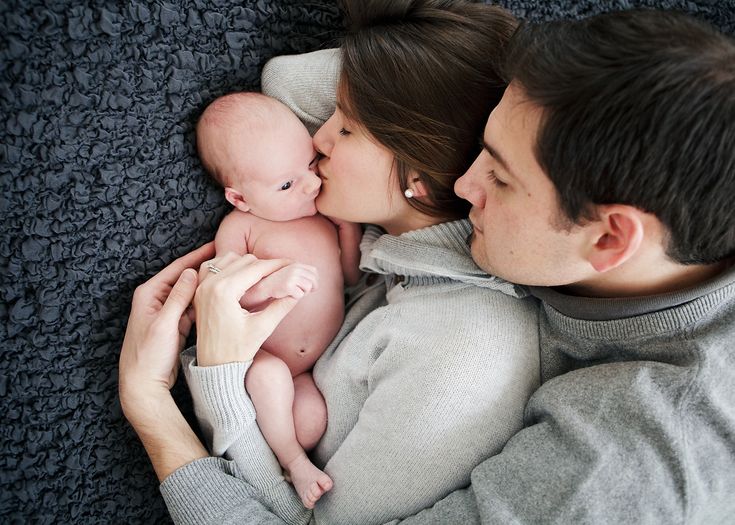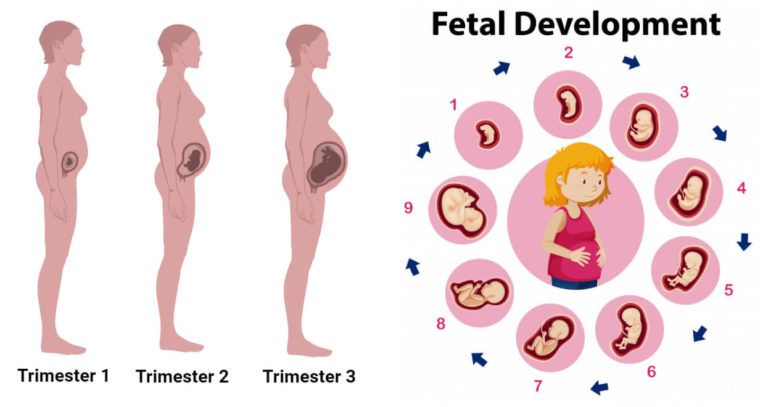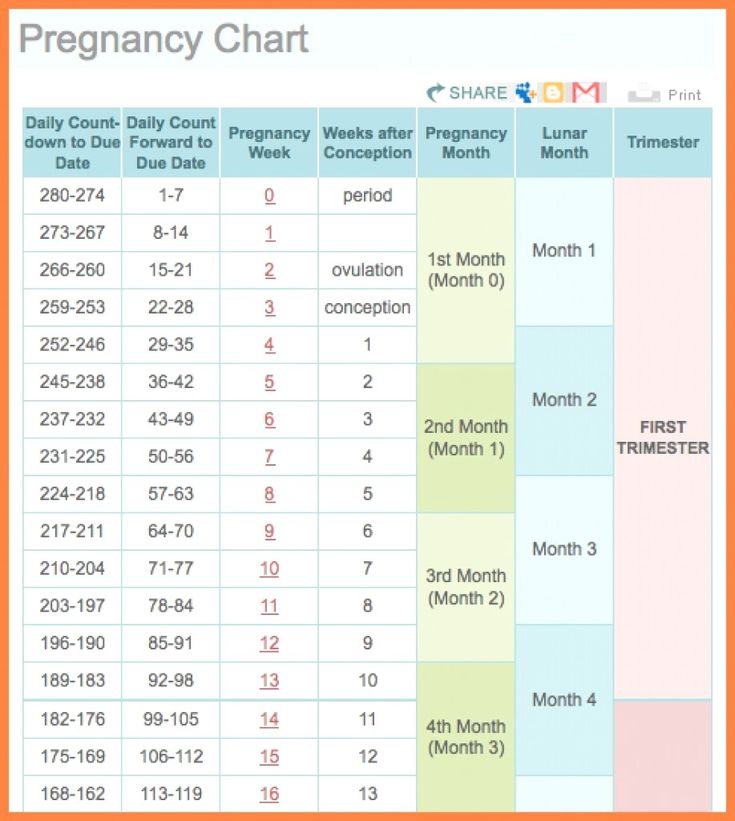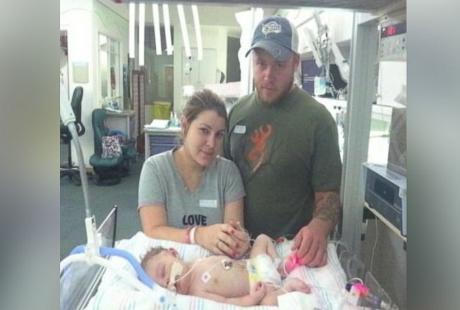Dads and newborns
The ultimate rookie dad guide to newborns
From changing diapers, to bonding with baby and supporting your partner, here's how to get comfy with the new addition.
When our first son was born, I was a musician, which meant that, apart from not making much money, I was home a lot during the day with my wife and baby. Sometimes, when I saw she was exhausted, I would try to help out by shooing her off to bed. “Don’t worry,” I’d say to Holly. “I’ll look after him. Get some rest.”
Inevitably, Riley would start fussing. I’d be working away to comfort him, and before long I would hear the thump, thump, thump of Holly running down the stairs as if the house were on fire. Although she never actually said these words, the urgency of her movement and her body language said, “What are you doing to my baby?!” It was as if she just had to know, at that millisecond, exactly what was going on and what she could do about it. Eventually we were able to joke about it, but at first I saw it as interference. I wanted the chance to learn to comfort Riley myself, and I needed the time and space to work it out. I wasn’t going to get anywhere if I got rescued whenever the going got tough.
What I didn’t realize was that my wife’s behaviour was much more about her than it was about me. I didn’t understand the pressure she felt to become an instantly competent mom, nor her intense need to bring order to her drastically altered world, and that meant being able to calm her baby.
It might seem odd to begin an article about fathers and babies with a story about a father and mother. However, I think that’s where you have to start because, while a mother has a pretty direct line to her baby, a father’s connection goes through the mother and, in the beginning, the father-infant relationship can never totally exclude her. When a new dad wants to build his relationship with the baby (which we’ll get into later) he must remember that it develops within the context of the mother-baby relationship.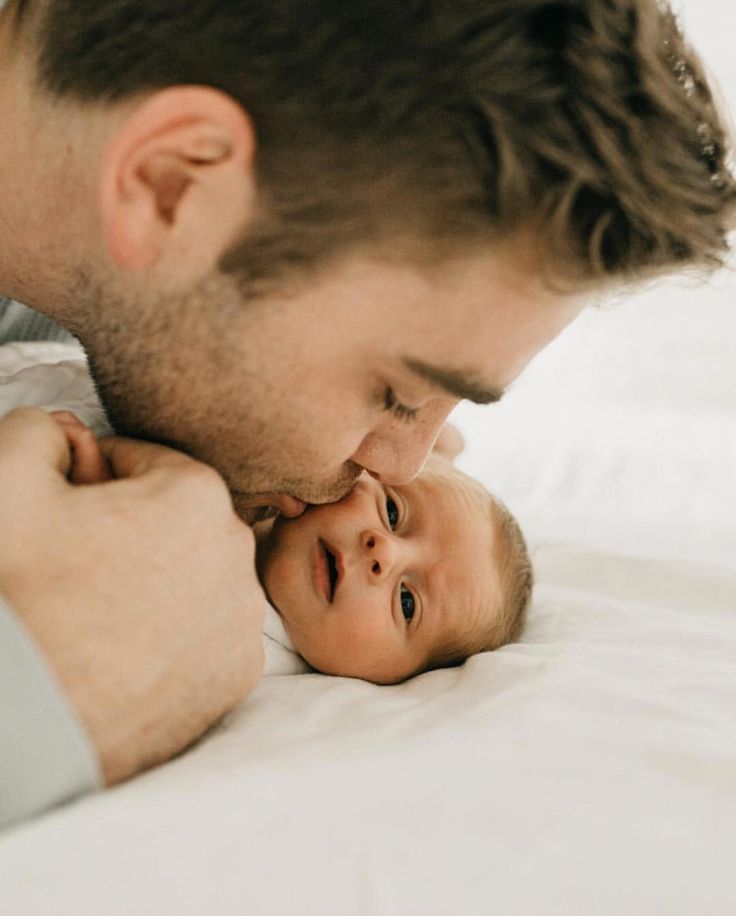 If he doesn’t understand this, he may run into trouble.
If he doesn’t understand this, he may run into trouble.
There was a time when we didn’t need to think about this. Gender roles were clearly divided and babies were seen by everyone as women’s territory. But now, fathers have invaded that territory. In our culture, most fathers want to be — and are expected to be—involved with their babies. That’s good, but we need to keep in mind that some of the realities from the past still hold true today.
Women are still socially and biologically programmed to be parents much more strongly than men are. Mothers expect to be “in charge” of babies and, in most families, they assume that role early on. When a father moves in to pick up the baby, he’s moving into her world. Therefore he needs to understand a little about that world.
The first thing to recognize is the intense nature of her relationship with her child. She’s in love, or at least falling in love. Clearly it’s not exactly the same as it is with a lover, but the emotional intensity and the obsession are similar. At times she acts as though the rest of the world is irrelevant. Observant fathers pick up on this and quickly get a sense that something of great significance is going on between their partner and the new baby. Often they are in awe of this relationship and will defer to mother and baby in order to keep from interfering with it. This is partly a good thing—the emerging mother-baby relationship needs to be supported, and fathers can play an important role by mothering the mother. (Somehow, “fathering the mother” doesn’t have quite the right ring to it.) But a father needs to develop his own connection, which means he needs to get at the baby. This is when he can become an “intruder” if he doesn’t watch his step, as my first experiences with Riley illustrated.
At times she acts as though the rest of the world is irrelevant. Observant fathers pick up on this and quickly get a sense that something of great significance is going on between their partner and the new baby. Often they are in awe of this relationship and will defer to mother and baby in order to keep from interfering with it. This is partly a good thing—the emerging mother-baby relationship needs to be supported, and fathers can play an important role by mothering the mother. (Somehow, “fathering the mother” doesn’t have quite the right ring to it.) But a father needs to develop his own connection, which means he needs to get at the baby. This is when he can become an “intruder” if he doesn’t watch his step, as my first experiences with Riley illustrated.
These encounters taught me (although I didn’t fully understand it until later) that the relationship between my wife and our sons was palpably physical. The mind and body of a mother are intimately connected. When a nursing woman hears her baby cry, even if she’s in another room, it triggers the release of a hormone that lets down her milk and makes her breasts leak.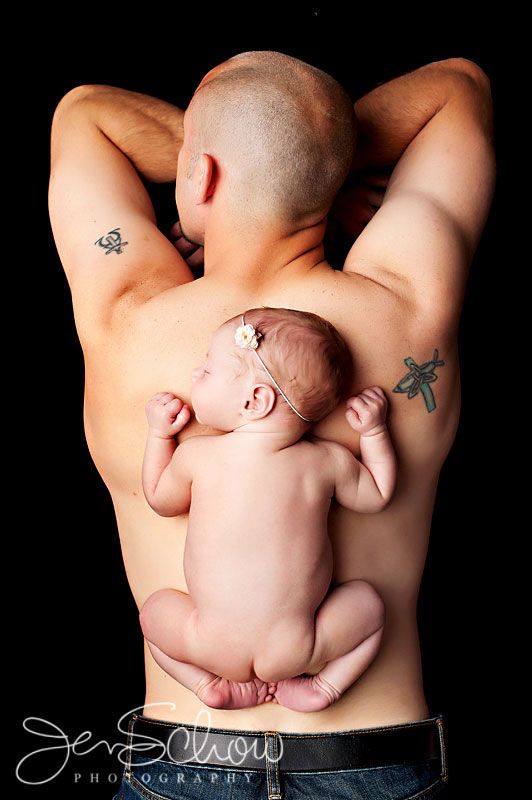 That kind of physical response, combined with the strong emotional connection, means that most mothers respond to a baby’s distress more quickly and strongly than fathers. That’s what compelled Holly to take the baby from me sometimes. Even though she desperately needed rest, there was just no way for her to lie up there and relax while he was crying. If her baby was in distress, she was in distress.
That kind of physical response, combined with the strong emotional connection, means that most mothers respond to a baby’s distress more quickly and strongly than fathers. That’s what compelled Holly to take the baby from me sometimes. Even though she desperately needed rest, there was just no way for her to lie up there and relax while he was crying. If her baby was in distress, she was in distress.
It wasn’t really a question of who was right and who was wrong. Holly was right to respond to those cues. That was part of what helped her become a good mom. But, at the same time, I was right to want to learn to comfort Riley myself.
This dynamic plays out a little differently in each family, but I think it speaks to an incompatibility that a man must acknowledge and work around. It requires an adroit balance: He must patiently persist in establishing his own connection with his child, while at the same time supporting and respecting his partner’s relationship with the baby. It’s one step forward, one step back. The idea is to make the forward steps a little bigger.
The idea is to make the forward steps a little bigger.
Now, about that baby.
With a new baby, there are two essential tasks: taking care of him and getting to know him. Looking after babies involves relatively simple skills. You need to feed them, interact with them, comfort them when they’re upset, keep them reasonably clean and give them a safe, comfortable place to sleep. Mind you, the skills may not seem so simple the first time you’re confronted with a little mass of waving arms and kicking legs who, upon being lowered to the change table, reaches desperately as if you had dropped him into an abyss. However, baby care is easily learned by almost anyone who is willing to (or has to) get in there and do it.
Getting in there and doing it also helps with your other task, which is getting to know him. In fact, the two are interdependent: You get to know your baby partly by handling and caring for him. At the same time, knowing him makes you more attentive, which enables you to better understand and respond to his needs. And all of this helps you bond with your baby.
And all of this helps you bond with your baby.
I remember asking a friend once—this was before I had kids—how he knew what the baby wanted. “He tells you,” my friend replied. I had no idea what he meant. How can a baby tell you? But now that I’ve looked after three babies of my own, I understand. The baby does tell you, but not with words or gestures or even looks that pass between you. It’s more that, as you spend time together, you learn to read the baby’s cues—his body language or his cries or coos in various situations. Whatever you might think of your wife’s apparent instinct for this, it’s an acquired skill that requires time and togetherness.
Part of developing the ability to read cues involves fathers and babies becoming comfortable together. I mean physically comfortable. Again, this takes time and daily caregiving helps because changing, dressing, bathing and comforting all require you to touch the baby. But there’s a particular level of physical contact that comes when parents and babies are just hanging out, and getting to this place means finding the way your bodies fit together.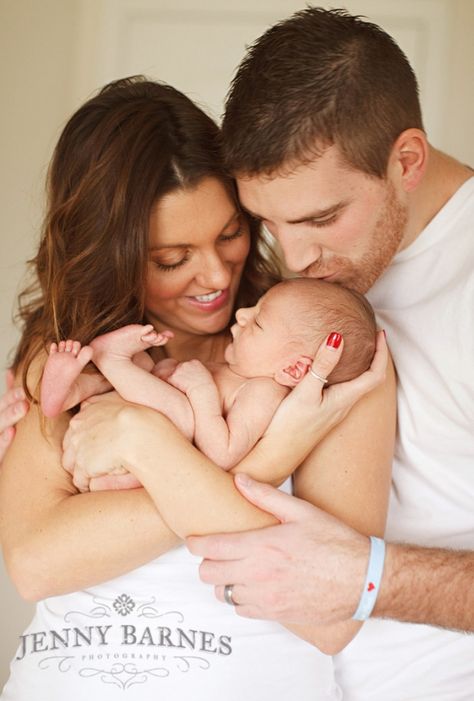 Each one of my kids seemed to want me to hold him differently, and it usually took a little time for us to figure out what that was. Quiet, relaxed time together helps you find this fit.
Each one of my kids seemed to want me to hold him differently, and it usually took a little time for us to figure out what that was. Quiet, relaxed time together helps you find this fit.
Mothers usually experience this by default. The child is born of her body, they usually spend a lot of time together and, if she’s nursing, they have a way to quite literally plug in to one another. For fathers it’s not quite as straightforward. It helps to make sure you get some of your holding time with a happy baby. Dads’ holding time is often “work”—caregiving, or coping with a fussy baby when mom is at the end of her rope. This is necessary, but you also need some undemanding time where you and the baby can just feel good together. Those are the moments when your baby’s body seems to melt into yours.
I have a half-baked theory that when parents and babies are together like this, little invisible love chemicals pass between them. Whether that’s true or not, the feeling you get from this kind of physical contact teaches you that babies give something back.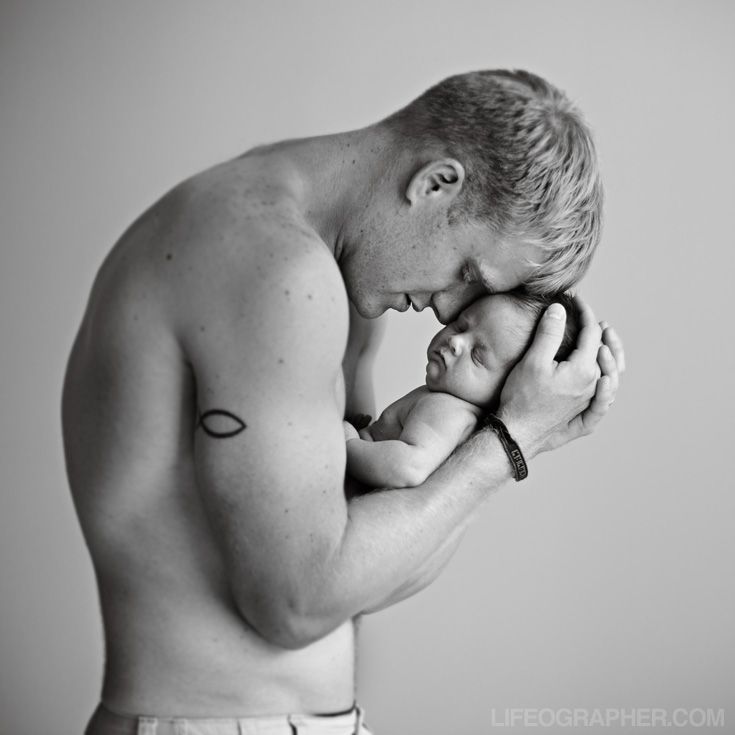 Yes, they can be a lot of work, but there is a wonderful payoff that comes from having his body language tell you, “I feel good with you. I want to be with you.” There is no better feeling in the world.
Yes, they can be a lot of work, but there is a wonderful payoff that comes from having his body language tell you, “I feel good with you. I want to be with you.” There is no better feeling in the world.
Wear your baby
Slings and front packs enable you to give your baby the closeness she needs without always having your arms full. Babies are also usually content in these carriers (particularly helpful with fussy babies), which helps promote bonding.
Your forearm makes a nice pillow
If your baby is always looking for a breast when you hold him, try this position: Hold your baby face down over one arm with his cheek nestled against the soft underside of your forearm and your hand cupping him under the crotch. Some people say this is good for gas. I don’t know about that, but there’s something about a manly forearm that seems to fit well with a baby’s head.
Sing her a song
Singing is one of the best ways to get a baby to respond and pay close attention to you. And it doesn’t matter what you sing or how good your voice is.
And it doesn’t matter what you sing or how good your voice is.
Go it alone
It’s hard for a father to work out his own style while mom is looking over his shoulder. It can help if fathers are sometimes left to their own devices with no one to bail them out. Short solo stints (as little as 20 to 30 minutes) with a freshly fed baby are best in the beginning. Early morning is a good time to try this, since many babies are in a good mood at this time of the day, and mom usually needs the sleep anyway.
Develop a thick skin
Your partner will correct you at times. Other times it may seem like she wants everything to be done her way. This is normal. It’s just her way of trying to bring order to a situation that often feels out of control (plus she might actually be right sometimes). This should ease up as her self-confidence and her confidence in your parenting skills increase.
This article was originally published in October 2011.
Stay in touch
Subscribe to Today's Parent's daily newsletter for our best parenting news, tips, essays and recipes.
- Email*
- CAPTCHA
- Consent*
Yes, I would like to receive Today's Parent's newsletter. I understand I can unsubscribe at any time.**
FILED UNDER: Baby 0-3 months Bringing baby home New baby new dads New mom
How can fathers bond with their newborns?
On Father's Day, we honor the important milestones fathers share with their children. Right from the start, dads play critical roles in their kids' care and development.
As certified child life specialists at the University of Chicago Medicine Comer Children’s Hospital, part of our role includes helping fathers understand and explore meaningful ways to bond with their newborns.
What are some of the ways that a father can be supportive during and after birth?Fathers are an essential part of the care team during labor and delivery at the Family Birth Center. They provide important emotional support for their partner, which may include being an advocate for their desired birth plan or communicating their partner’s needs to the medical team. They can also help provide updates to other family members and coordinate care for older children. Fathers often need support as well. They should feel comfortable asking questions throughout the admission to increase their understanding and confidence in their role.
They provide important emotional support for their partner, which may include being an advocate for their desired birth plan or communicating their partner’s needs to the medical team. They can also help provide updates to other family members and coordinate care for older children. Fathers often need support as well. They should feel comfortable asking questions throughout the admission to increase their understanding and confidence in their role.
In a baby’s earliest days, fathers can provide consistent nurturing and care. These are the building blocks of the bond that they will share with that baby forever. Even before birth, babies spend many weeks getting to know their father’s voice. Fathers can read or speak to their baby to enhance this bond and encourage language development. Fathers can also change diapers and offer bottle feeds, in addition to rocking, holding (including skin-to-skin/kangaroo care), soothing, and playing with their newborns.
Kangaroo care is when a parent or caregiver holds a baby skin-to-skin on their chest. Typically, the caregiver will remove their shirt and remove baby’s clothes (except for the diaper or hat). Holding a baby this way allows for skin-to-skin contact while the baby is able to hear the caregiver’s heartbeat and the sound of their voice. There are many benefits to babies when being held this way, but there is also a big benefit for dads. When dads hold babies skin-to-skin, it provides both dad and baby with mood-boosting hormones that increase the parent-baby bond and can help the baby feel soothed. Yes, we welcome this kind of parent-baby bonding throughout the hospital!
What are some of the other things dads can learn about childcare at Comer?There are many prenatal and family education classes offered at Comer Children's for all caregivers, including a Support Partners Workshop.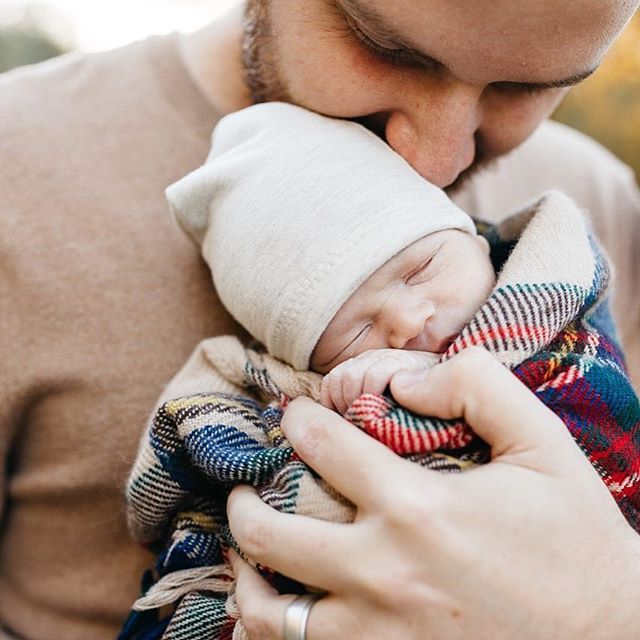 Parents in the neonatal intensive care unit (NICU) also learn infant cardiopulmonary resuscitation (CPR) prior to going home. Dads can be included in all education at bedside and are welcome to ask any questions they may have prior to going home. It is important for dads to get involved in learning so that all parents feel as confident as possible when it's time to take their baby home!
Parents in the neonatal intensive care unit (NICU) also learn infant cardiopulmonary resuscitation (CPR) prior to going home. Dads can be included in all education at bedside and are welcome to ask any questions they may have prior to going home. It is important for dads to get involved in learning so that all parents feel as confident as possible when it's time to take their baby home!
Father and Baby: 10 Ways to Get Closer
Modern dads want to communicate with their child without waiting for it to grow up and speak. And although the mother is the main person in the life of a newborn, he will be very lucky if there is a father from the very first days in his life.
All young fathers know that their task is to take care of the mother of their child, their relationship with her, providing support, being ready to discuss and resolve any family issues. They also need to remember that a woman experienced stress at the time of the birth of a child, changed her social status, so she needs to be attentive to her feelings and needs, and gradually enter a new role.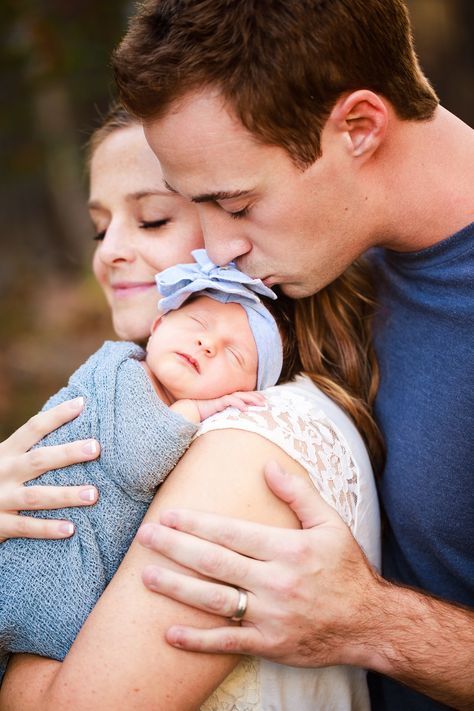 But perhaps the main change remains: now they both have to build a relationship with their own child. How to communicate at the very beginning of "life together", without waiting for a year, two or three?
But perhaps the main change remains: now they both have to build a relationship with their own child. How to communicate at the very beginning of "life together", without waiting for a year, two or three?
The first weeks of fatherhood
If you are in a state of intense emotional stress (not to mention the lack of sleep that often happens during the birth of a child), you may not know what to do and where to start. It may seem to you that your mother is doing a great job with everything and you have absolutely nothing to do. But this is not so!
The baby is ready to "start a relationship" with his father from birth. Touch, talk, play, and participate in daily care help create attachment.
Use all your free time to get to know your baby, this is a great way to feel like a father. Be sure that in the long run this "investment" will pay off with interest and give you the opportunity to build a strong relationship with your child.
"Becoming" a father will be one of the most significant events in the lives of many men. And for a child, the father figure will determine a lot not only in childhood, but also in the future. The influence of a father on children, on their development, can be enormous. And it starts not sometime in the future, but right now.
And for a child, the father figure will determine a lot not only in childhood, but also in the future. The influence of a father on children, on their development, can be enormous. And it starts not sometime in the future, but right now.
10 tips for new dads
1. Take care of your baby from the very beginning
New fathers are often afraid of their inexperience, they think that they will not be able to handle the baby skillfully, that they may do something wrong. Still, participating in the daily care of a baby—dressing, changing, changing clothes, playing, bathing, and changing diapers—is the best way to learn useful skills and build self-confidence. These daily activities allow you to spend a lot of time with your baby, which, in turn, creates the basis for a positive relationship. An additional bonus is that mom gets the opportunity to take a break.
2. Learn baby's "cues"
Babies communicate with adults through their bodies and behavior.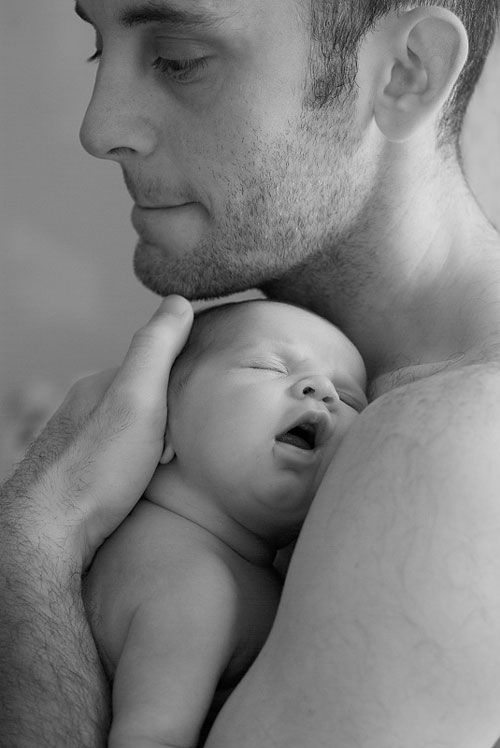 If you carefully consider the signals of the baby, tune in to his condition, then after some time you will accurately learn to determine all his needs.
If you carefully consider the signals of the baby, tune in to his condition, then after some time you will accurately learn to determine all his needs.
3. Learn to communicate through touch
Your touch makes your child feel safe. Tactile sensations create trust and form attachment. This is very important because this kind of connection between an adult and an infant stimulates the development of the child's brain. Try to take the baby in your arms as soon as you have the opportunity. If you press him to your chest, he will be able to hear your heartbeat.
4. Always talk to your baby
Talk when you are carrying or changing your baby: “Let's change the diaper. Really, is that better? Take dry and clean. Don't cry - we'll finish soon." Every word a child hears helps develop language and, in addition, strengthens your relationship. Tell stories, read books and sing songs. All this will bring great benefits to both you and the baby.
5. Help mom with breastfeeding
Breast milk is the best food for a baby.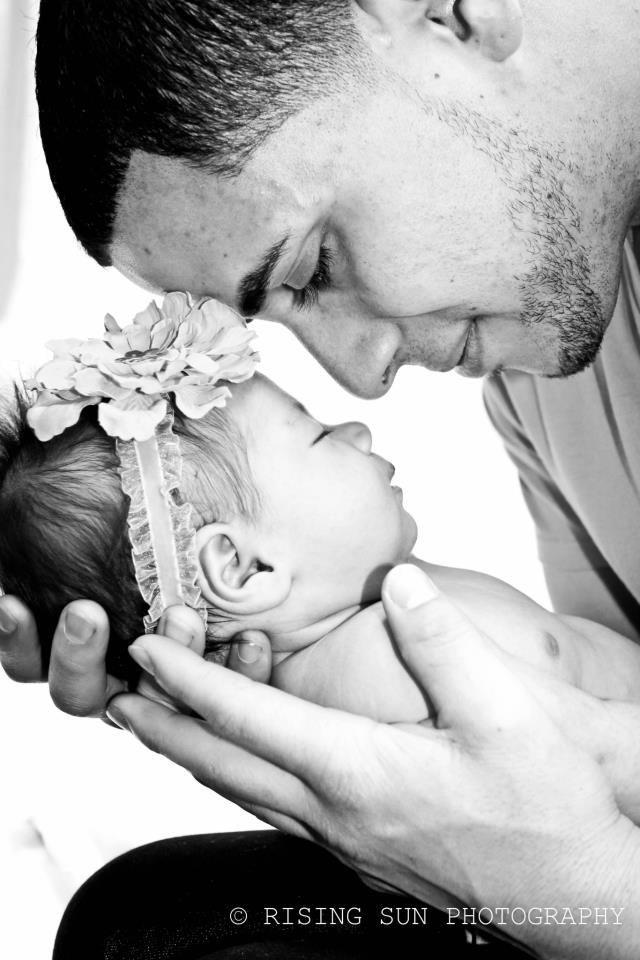 While mom is learning to breastfeed, she will need your support. Provide practical help - bring water or a diaper, adjust the pillow, be there. If there are any problems, find out and tell your baby's mother who to contact for help with breastfeeding. If for some reason a mother cannot breastfeed, you should reassure her that it is not her fault, that it will not harm the baby, and learn more about artificial feeding.
While mom is learning to breastfeed, she will need your support. Provide practical help - bring water or a diaper, adjust the pillow, be there. If there are any problems, find out and tell your baby's mother who to contact for help with breastfeeding. If for some reason a mother cannot breastfeed, you should reassure her that it is not her fault, that it will not harm the baby, and learn more about artificial feeding.
6. Spend one-on-one time with your baby
Being alone is a very important time for you and your baby. At such moments, pay all your attention to the baby, tune in to him. This is how attachment occurs. You don’t need to invent anything on purpose, just look the baby straight in the eyes and talk to him.
7. Search for information
It doesn't matter if your child is your first or fifth, you can always learn something new! Communicate with other dads, study information on the Internet, read books for parents - sometimes you can find answers to your questions there.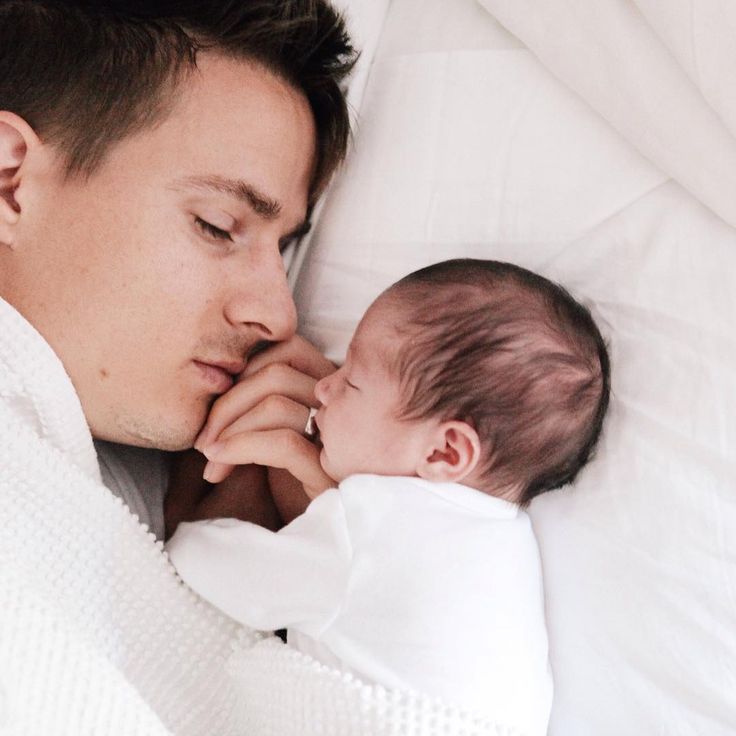 But at the same time, be critical of what you read: not all advice should be followed, not all ideas will suit your family.
But at the same time, be critical of what you read: not all advice should be followed, not all ideas will suit your family.
8. Get help
If someone says, "Can I help you?", always say "Yes!" Discuss with the mother of the child what kind of help from family members, friends, colleagues or neighbors you could gladly accept. Never refuse even the simplest help options, such as an offer to buy milk on the way.
9. Take care of your relationship
The birth of a child can create additional stress in a couple. Try to stay positive and support each other in parenting roles. A simple question about how you feel will let your wife know that you care about her. Discussing current issues and exchanging opinions is a good habit that will come in handy in the future. And you can and should talk about anything. There are no trifles and unimportant issues in life together.
10. Keep fit
If you are feeling well, caring for and interacting with your child will bring more joy and benefit to both of you. Keep in mind that you can restore energy, relax and sleep not only at night. Your good mood and well-being will provide invaluable support to your family.
Keep in mind that you can restore energy, relax and sleep not only at night. Your good mood and well-being will provide invaluable support to your family.
Remember that the sooner you establish contact with a child, the better your intuition will work, the more subtle you will feel and understand him. In order for you to develop a warm relationship with your son or daughter that you will keep later, learn to enjoy communicating with your child now.
Source:
RaisingChildren Parenting Portal
Newborn Dad - Child Development Articles
There is an opinion that it is much harder for dads to get used to communicating with a newly born baby. Indeed, to a greater extent, the well-being of the crumbs depends on the warmth and care of the mother.
But, dear dads, don't wait for the little ones to grow up and start talking. The happy time of the "newborn" is exactly the time when it is worth making contact and learning to understand each other.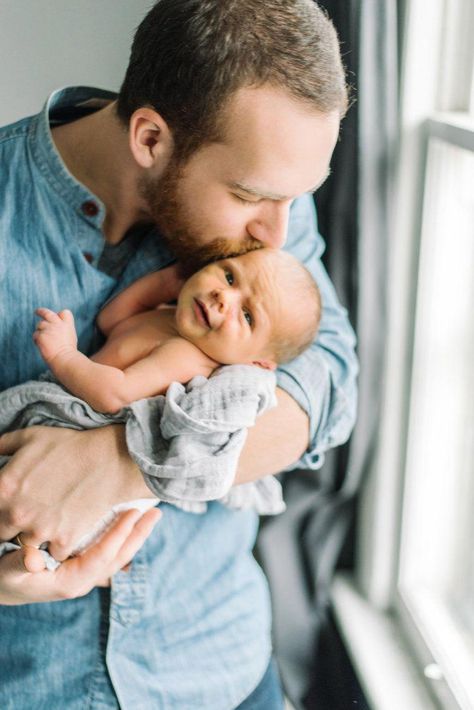 Don't miss these nice moments!
Don't miss these nice moments!
Of course, it is important that our strong men begin their conversation with the babies while they are still in the mother's belly and continue to understand and support the growing family day by day. The sooner dad gets involved in taking care of the baby and communicating with him, the more harmoniously relations in the family will develop in the future.
One dad once said about his feelings: “This is amazing! Only a few days ago I took my beloved to the hospital... I realized that I love her like no one else in the world. And today I saw my son and understood - it turns out that I already love not only my wife, but also my son equally!
And another father described his impressions in the following way: “When my daughter was born into the world, she was like a little alien who somehow miraculously appeared in our lives. So small, but so strong and beautiful. It seemed to me that at birth, children are obliged to scream heart-rendingly, and she seemed to calmly tell us something in her own language.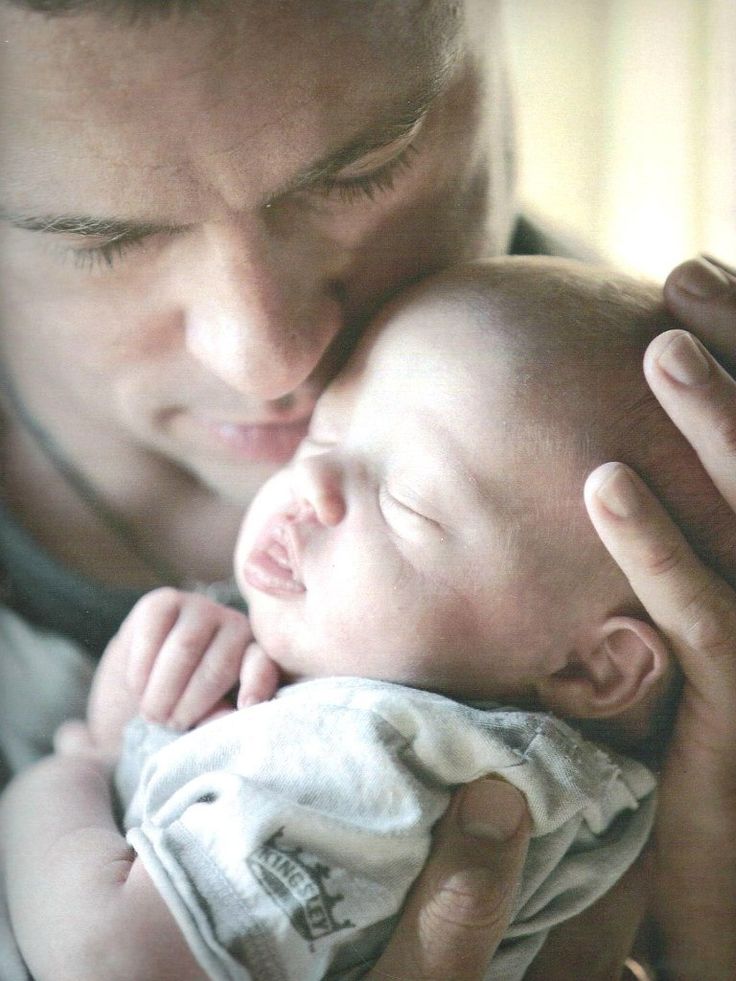 But the most amazing thing was the look in her dark eyes, so deep, studying, wise. I realized what an amazing event it is - the birth of a person.
But the most amazing thing was the look in her dark eyes, so deep, studying, wise. I realized what an amazing event it is - the birth of a person.
Advice for Dad
1. In the early days after having a baby, it's important not to give in to feelings of insecurity and fear because you don't know how to handle children. Be bold, learn new knowledge, gain life experience. Do not hesitate to ask your beloved how best to swaddle the baby, hold him or feed him.
2. Do not under any circumstances think that you have been abandoned and that all your wife's attention will now always be focused on the child. Do not hide your feelings and do not go headlong into work and communication with friends. Share your experiences with your loved one. And from the first day, try to spend more time at home, take care of mom and baby and understand their feelings - then everything will fall into place right away.
3. During the first year of life, a child develops an image of himself. What he will be depends largely on his father. When you exchange a look with a child, smile at him, praise him, the child understands that he is good, that his dad loves him. By doing so, you instill a sense of confidence in him. Make sure that positive emotions prevail in your appeals to the child.
What he will be depends largely on his father. When you exchange a look with a child, smile at him, praise him, the child understands that he is good, that his dad loves him. By doing so, you instill a sense of confidence in him. Make sure that positive emotions prevail in your appeals to the child.
4. Come up with your own ways of communicating with your baby. Use the time that you can fully devote to the child as efficiently as possible. Go for walks, feed him, bathe him.
5. I want to talk about swimming separately - discover this exciting activity. You will not only witness the vivid emotions of your baby, but with your masculine confidence and support you will help your mother a lot. And from bathing, you can go to swimming itself - after all, it is men who often "take patronage" over the physical development of the baby.
6. Don't forget to touch. Courageous daddy's hugs are different from mom's - the child will feel that your touch is special, and he will be sure that you are his reliable protector.